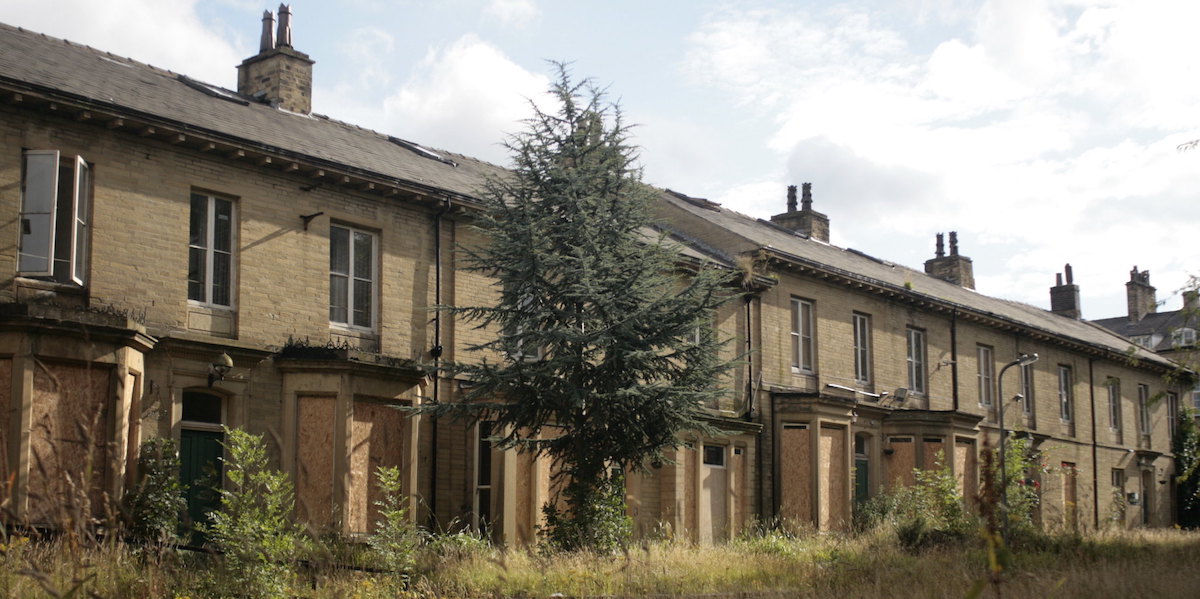The government’s actions to try and house rough sleepers are inadequate. The acquisition of empty homes for the homeless is a viable short and long-term solution, argues.
By: Adam Peggs

The United Kingdom is already facing appalling levels of homelessness, and the coronavirus outbreak is beginning to highlight the state of day-to-day life in the country after a decade of cutbacks and widening inequality. Concerns over how the homeless will self-isolate have proliferated, almost glossing over the need for people to be housed in the first place.
In mid-March the government announced an emergency fund to help those sleeping rough during the pandemic. Yet this £3.2 million fund is patently inadequate – and risks leaving people out in the cold during a period where charitable support is drying up. In its latest research, the charity Shelter suggests that there are now around 320,000 people homeless in the UK – around 1 in every 200 people. A crisis on the scale of the coronavirus outbreak will leave these people under potentially unprecedented threat.
Now, the government has requested that all councils do all they can to get accommodation for rough sleepers, with the BBC reporting that Whitehall has offered to procure accommodation. The homelessness charity Crisis have already cast doubts on how much this move will actually achieve and have called for a national appeal for accommodation. But we need more than a national appeal – a better route would be to transfer empty homes from their owners to councils.
Empty houses
We live in a country with no shortage of financial resources and more homes than there are people. In 2018, more than 216,000 homes had been empty for six months while thousands – some 28,000 according to UK councils – slept rough on our streets; record levels in London were reached in late 2019. And around 23,000 homes have sat empty for more than five years. To top this, there are a substantial number of long-term empty commercial premises in the country – in London in 2018 there were 11,000 such buildings that had stood empty for at least two years.

Meanwhile, the total value of second homes (including buy-to-let properties) in Britain has reached nearly £1 trillion – up 50 per cent since the turn of the millennium. If that wealth were distributed evenly, that would translate to about £150,000 of housing wealth per head for the whole population, or about £180,000 per adult. Second home ownership has risen by 30 per cent in the same timeframe.
Empty housing, and the broader maldistribution of housing in the United Kingdom, are longstanding and entrenched problems. Even looking past the problems of empty buildings and vast inequalities in housing wealth, the UK has a problem of under-utilising housing. As the authors of the Labour Party’s Land for the Many wrote last year, the ‘number of dwellings in the UK has been growing faster than the number of households’ and ‘we have more bedrooms per person than ever before’. This ‘reflects an increasingly unequal distribution’.
Solutions available
Transferring long-term empty homes to councils is already in line with Labour Party policy, passed unanimously at 2019’s conference. Homelessness, and depriving many of the very poorest in our society of human dignity, are political choices. With the country under lockdown, and in perhaps the worst public health crisis in living memory, it is time to step in and do what is necessary to guarantee people homes.
In 2017, Jeremy Corbyn called for empty flats in Kensington to be subject to Compulsory Purchase Orders or requisitioned in the wake of the Grenfell Tower fire. While he was mocked at the time, similar powers had been used in the same borough during the Second World War to house Gibraltarian refugees. Far from advocating for draconian measures, Corbyn was responding to an emergency by prioritising social needs rather than continuing to appease narrow private interests.
We are now seeing enormous state intervention in the wake of the coronavirus outbreak, beyond anything witnessed in our lifetimes. There is a significant danger however – a likelihood even – that the increased size of the state and its activities are not being deployed for the collective good, but to shore up capital. While it is positive that some rough sleepers in London have been given accommodation at discounted rates in hotel rooms, we should question whether it is right that private companies should profit from this.
It would be apt to take these companies into public ownership, potentially turning them into providers of housing for those in the greatest need.
Beyond crisis
Some of these measures – even most of them – needn’t be temporary. When the Second World War ended requisitioning powers were maintained in order to deal with the post-war housing crisis. After all, if we can house the homeless in a public health crisis why not provide housing to all in the first place?
Councils already have the powers to raise council tax on empty homes and to compulsorily purchase or otherwise bring empty homes back into usage, but they have rarely been used. Homes left empty long-term and empty properties owned by landlords with large portfolios could be requisitioned and used to house the homeless, while those left empty for the shorter term should face a higher tax burden – with the proceeds directed toward homeless reduction and support. And where appropriate, in the longer-term, empty commercial properties could be turned into residential accommodation and appropriated for the homeless and for those on the vast social housing waiting list.
As more people in London sleep in the cold than at any time on record, it is time to think of organising housing provision based on common need, not private interest, and not merely in times of global crisis.



